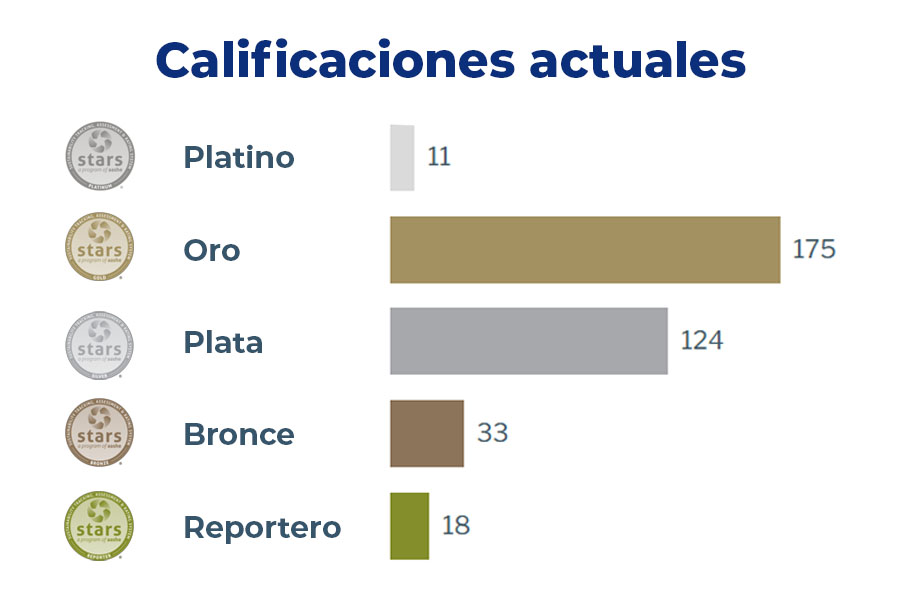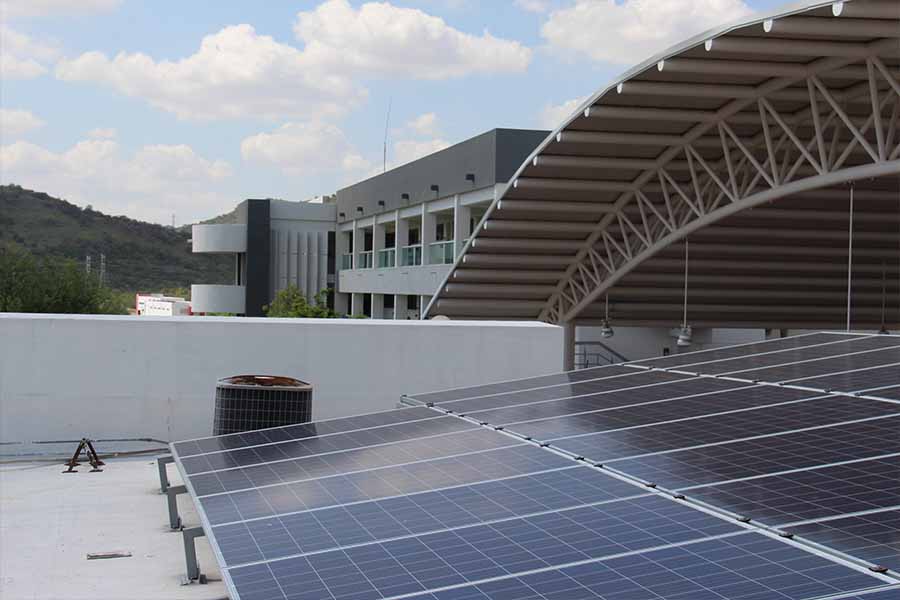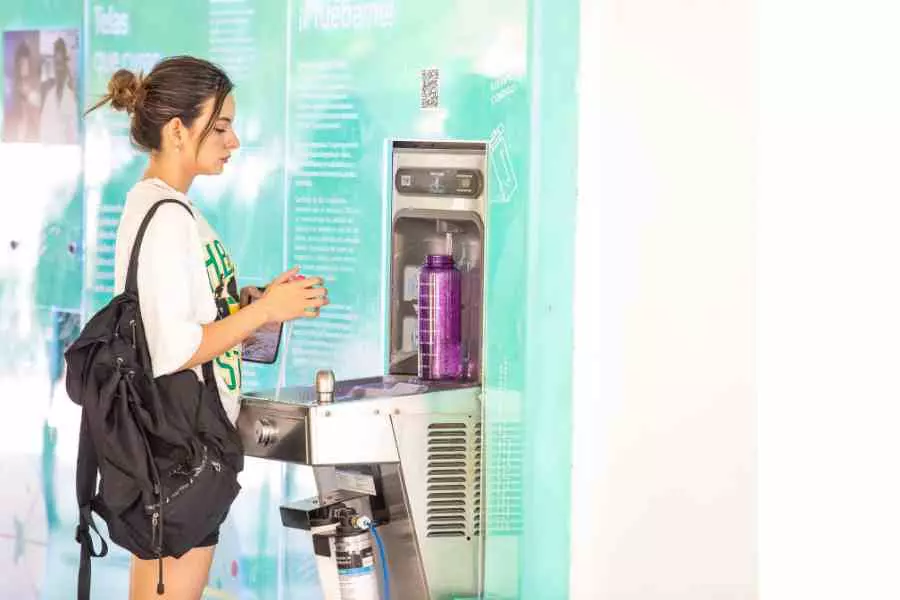Thanks to the environmental actions of its community, 16 of Tec de Monterrey’s campuses have received STARS sustainability certification, provided by the Association for the Advancement of Sustainability in Higher Education (AASHE).
The Tec’s Monterrey campus received gold certification, making it the highest rated in Latin America and the only one in Mexico to receive a gold rating.
Meanwhile, the other 15 campuses achieved silver certification. These campuses are as follows: Guadalajara, Querétaro, Puebla, Mexico City, Santa Fe, State of Mexico, Toluca, Sonora Norte, Chihuahua, Aguascalientes, Laguna, Ciudad Juárez, León, San Luis Potosí, and Sinaloa.
Diana Peláez, National Leader of Sustainable Certifications and Rankings at Tec de Monterrey, said:
“This global certification serves as a measure of the importance and impact of our initiatives, putting us on a par with some of the most important universities in the world.”

Tec stands out among universities in LATAM
According to Peláez, STARS has a transparent evaluation framework created specifically for universities. This framework focuses on measuring five areas: Academics, Engagement, Operations, Planning & Administration, and Innovation & Leadership.
Participants in STARS receive a score that earns them a bronze, silver, gold, or platinum rating or Reporterdesignation.
The National Leader of Sustainable Certifications and Rankings said that by receiving the gold rating, the Monterrey campus has positioned itself at the same level as universities such as the Massachusetts Institute of Technology (MIT), Yale, Princeton, and Georgia Tech.
The Guadalajara, Querétaro, Puebla, Mexico City, Santa Fe, State of Mexico, Toluca, Sonora Norte, Chihuahua, Aguascalientes, Laguna, Ciudad Juárez, León, San Luis Potosí, and Sinaloa campuses received silver ratings, as did institutions such as Northeastern University in Boston and Syracuse University in New York.
“Our initiatives are important and impactful, putting us on a par with some of the most important universities in the world.” - Diana Peláez
Consolidating best practices and identifying areas of opportunity
Diana Peláez pointed out that STARS certification doesn’t measure the system or Tec de Monterrey as a whole; each campus must follow a separate process to receive an individual rating.
“It’s a comprehensive certification that covers many topics, so it helps us identify what we are doing well on each campus and where we could be doing more,” she said.
Certification required the identification, documentation, and justification of the actions and initiatives carried out on each campus in the five areas evaluated by STARS.

Peláez recalls an extensive process in which staff from different areas of each campus participated, including academics, operations, talent and experience, and culture.
“Maybe people don’t know it, but the Tec carries out sustainable actions every day on all its campuses. This is a way of telling them that everything we naturally do as a campus, as students, and as research professors has value.
“So, the importance lies precisely in measuring that and being able to recognize that you are among the best in the world, that you are a pioneer, that you are trying to raise awareness, to make a positive change in the world,” said the Tec official.
Commitment to sustainability
Seeing STARS as a comprehensive tool, the Tec has decided to adopt this certification as a strategic indicator of the institution’s Ruta Azul initiative, said Diana Peláez.
Each of Tec’s campuses takes various actions to protect the environment, such as using solar panels to generate energy, building water treatment plants, and incorporating subjects focused on sustainability into the curriculum, as part of a sustainable model.
“We realized that STARS is not only optimized for evaluating universities, but the areas it evaluates are also very much in line with our sustainability project,” said Peláez.
The Tec’s Sustainability and Climate Change Plan, known as Ruta Azul, is its internal strategy for turning the institution into a model of sustainability and contributing to a sustainable future.
Ruta Azul has six pillars: mitigation, adaptation, outreach, education, research, and culture.

Certified campuses and their position in Latin America
- Monterrey Campus: gold and #1 in LATAM
- Guadalajara Campus: silver and #3 in LATAM
- Querétaro Campus: silver and #4 in LATAM
- Puebla Campus: silver and #5 in LATAM
- Mexico City Campus: Silver and #6 in LATAM
- Santa Fe Campus: silver and #7 in LATAM
- State of Mexico Campus: silver and #8 in LATAM
- Aguascalientes Campus: silver and #9 in LATAM
- San Luis Potosí Campus: silver and #10 in LATAM
- Toluca Campus: silver and #11 in LATAM
- Laguna Campus: silver and #12 in LATAM
- Sonora Norte Campus: silver and #13 in LATAM
- Ciudad Juárez Campus: silver and #14 in LATAM
- Sinaloa Campus: silver and #15 in LATAM
- León Campus: silver and #15 in LATAM
- Chihuahua Campus: silver and #13 in LATAM
*Original article 29/11/2024. Article updated 27/03/2025
YOU’LL SURELY ALSO WANT TO READ:





